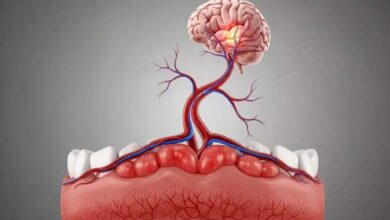Late Breakfast May Reveal Early Health Problems

The role of breakfast in human health has been studied extensively, but recent research provides fresh insights into the importance of the timing of the first meal. Far from being a mere convenience, breakfast plays a pivotal role in circadian rhythm regulation, hormone balance, and chronic disease prevention. Studies now suggest that consistently delaying breakfast could serve as an early warning sign for metabolic, cardiovascular, and endocrine disorders.
-
Chocolate with Beneficial Bacteria: A Nutritional Breakthrough Awaiting a ‘Difficult Equation’ to Be Solved
-
A breakfast rich of protein to prevent overeating and obesity
Metabolic Synchronization and the Body Clock
The human body operates according to an internal clock that regulates hormone production, body temperature, sleep, and metabolism. Eating breakfast early aligns this clock with the natural light-dark cycle, optimizing energy management and insulin secretion. Conversely, frequent delays disrupt biological synchronization, causing blood sugar fluctuations, insulin resistance, and mid-morning cravings.
This misalignment can also affect lipid and carbohydrate metabolism. People who skip or delay breakfast often show less favorable lipid profiles, increased abdominal fat, and a higher risk of metabolic syndrome.
-
For Weight Loss: 3 Key Ingredients for an “Ideal” Breakfast
-
Skipping breakfast – Good or bad for health?
Cardiovascular Implications
The effects are not limited to metabolism. Epidemiological studies have linked late breakfast consumption to higher rates of hypertension, abdominal obesity, and abnormal cholesterol levels, all of which increase vulnerability to cardiovascular disease, the leading cause of death worldwide.
Breakfast thus serves as a starting point for daily cardiovascular regulation. Aligning caloric intake with hormonal cycles helps stabilize blood pressure and optimize heart function throughout the day.
-
Are fibers the forgotten secret to weight loss?
-
The “Key to a Healthy Weight”: Three Types of Fiber to Include in Your Diet
Hormonal Impact and Stress
Late breakfast also affects the endocrine system. Cortisol, the key hormone for wakefulness and stress response, follows a precise circadian rhythm. Delaying breakfast can shift cortisol secretion, leading to fatigue, chronic stress, and appetite dysregulation. Hormonal imbalance may promote compulsive eating behaviors and excessive fat storage, further elevating metabolic risk.
Early Warning Signs and Prevention
Symptoms associated with late breakfast are often subtle: fatigue, concentration difficulties, cravings, mood swings, blood sugar fluctuations, or poor food tolerance. These can serve as early indicators to identify at-risk individuals before serious health problems develop.
-
Flavonoids – Nature’s Defense Against Aging
-
Vegetables and Grains: Essential Natural Allies to Break Down Blood Clots and Lower Cholesterol
Clinically, breakfast timing could become a simple, non-invasive marker for metabolic monitoring. Combined with blood sugar analysis, lipid profiles, and hormone levels, it could guide personalized preventive strategies.
Lifestyle Factors and a Holistic Approach
However, breakfast timing should not be considered in isolation. Overall lifestyle factors—sleep quality, physical activity, stress levels, and diet quality—interact with circadian rhythms to determine metabolic and cardiovascular health. Late dinners or irregular sleep patterns can amplify the negative effects of delayed breakfast.
-
Do Air Fryers Increase the Risk of Cancer?
-
To Avoid Insulin Resistance and Weight Gain… Beware of “Refined Carbohydrates”
Future Perspectives
These findings open promising avenues for chronic disease prevention. Encouraging early breakfast consumption may be a simple, accessible strategy to reduce the risk of diabetes, obesity, and cardiovascular disorders. Public health campaigns could integrate meal timing into nutritional recommendations, alongside food quality and quantity.
In conclusion, eating early in the morning is more than a cultural habit—it is a physiological act that synchronizes the entire body. This approach could be an effective way to detect early imbalances and maintain long-term health.












